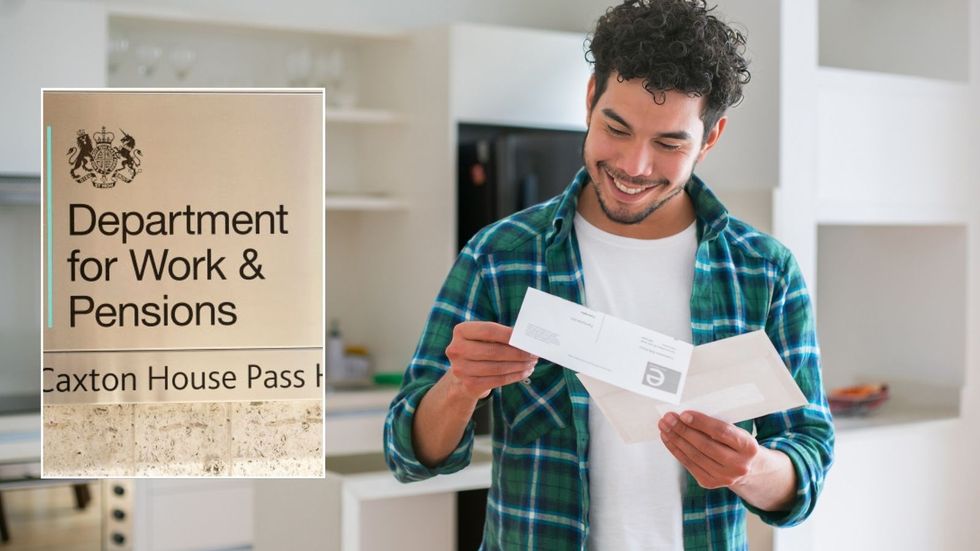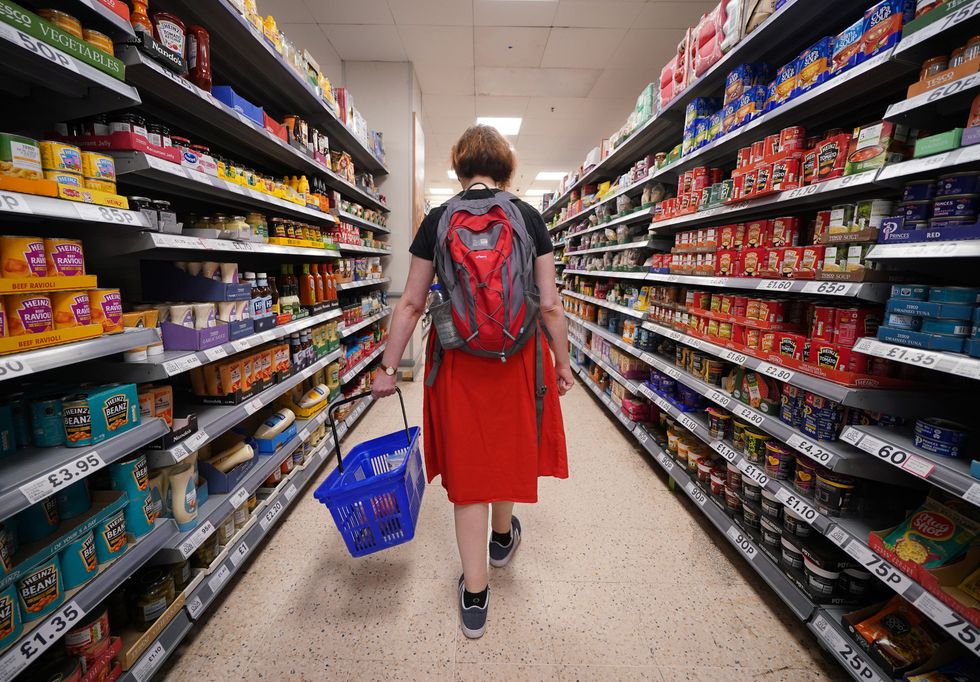DWP benefit claimants and recipients of HMRC tax credits will get the Government’s £299 cost of living payment from today
Don't Miss
Most Read
Trending on GB News
Millions of households are set to receive nearly £300 as a cost of living payment between today and February 22.
Some eight million people in receipt of certain benefit payments from the Department for Work and Pensions (DWP) and HM Revenue and Customs (HMRC) tax credits will get £299 in support.
These payments are part of a wider £104billion cost of living package and will be paid automatically into the bank or building society account someone gets their benefits paid into.
HMRC tax credit customers will begin to get paid from February 16 to February 22.
Do you have a money story you’d like to share? Get in touch by emailing money@gbnews.uk.

Cost of living payments are being rolled out as of today
GETTY
The latest £299 amount is part of the wider £900 cost of living payment for people claiming means-tested DWP benefits or tax credits.
Last year, the Government paid the previous two instalments which were worth £301 and £300.
Aside from this support, there has been two separate payments for pensioners and disabled people worth £300 and £150, respectively.
As households have struggled with rising energy bills and inflation-hiked prices, the Government has launched multiple support schemes, including a discount on gas and electricity costs worth £400.
If you receive one of the below DWP benefits or HMRC tax credits, you could be entitled to the £299 cost of living payment:
- Income-based Jobseeker’s Allowance (JSA)
- Income-related Employment and Support Allowance (ESA)
- Income Support
- Pension Credit
- Universal Credit
- Child Tax Credit
- Working Tax Credit.
Benefit recipients are eligible for the amount if they received, or were later found to be able to receive, the DWP benefit during an assessment period that ended in the period November 13, 2023 to December 12, 2023.
Claimants will not get the cost of living payment if they receive a “nil award” over the period which is when their benefit payment is reduced to zero.
This often happens when someone has been sanctioned or if they received more than one payment of earnings during the Universal Credit assessment period.
LATEST DEVELOPMENTS:

Britons have struggled with the cost of living in recent years
PAMel Stride, the Secretary of State for Work and Pensions, said: “The economy has turned a corner, and with inflation falling we are providing millions of the most vulnerable households with another significant cash boost.
“Our fair approach to welfare is underpinned by a belief that the best way to secure long-term financial security is through work.
“This is why we have cut taxes for over 27 million working people and have launched a £2.5billion Back to Work Plan to help thousands more people off benefits and into jobs.”
Chancellor of the Exchequer Jeremy Hunt added: “Our decisive action helped to more than halve inflation last year while building the foundations for long-term growth through sensible tax cuts, which will help people’s money go further.
“But the legacy of Covid and the ongoing Ukraine war has meant the last few years have been tough for many, which is why we’ve provided one of the largest support schemes in Europe worth £3,700 for the average household.”









